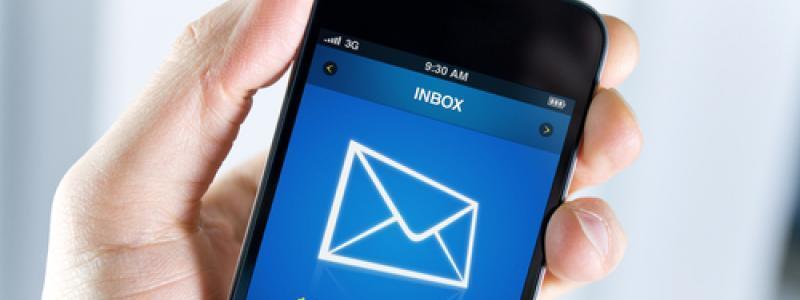Is Email Dying?

According to a report published by App Annie, it appears that email is about to go extinct, at least among mobile users in their teens and early twenties. Indeed, the data on App Annie’s report showed that mobile users belonging to the age bracket of 13 years old to 24 years old now allot over 3.5 times overall usage time in messaging apps than those users with ages beyond 45 years old, while older mobile users still make use of apps that function similarly or mimic desktop tools, such as email platforms and Internet browsers.
In formulating its report, App Annie collected information from an extensive sample of real world mobile users, plus the company’s own considerable proprietary data sets. But it should be noted that App Annie’s report only covers mobile users owning devices powered by Google’s Android mobile operating system. Android may be the most widely used platform for smartphones and tablet devices, but in the United States, it may not provide a good presentation of the whole mobile population, considering how popular iPhones are (which runs on Apple’s iOS mobile operating system) in America. Still, even if information related to iOS is added to the data, the larger trends may still remain.
For people who did not grow up owning a smartphone, they tend to use mobile devices as sort of a personal handy computer. App Annie’s data shows that those older than 45 years old allotted a bigger share of their time using the top 5 mobile web browsers on their smartphone than any other age grouping. Moreover, they spent more time using the top 5 Android email apps and less time using the top 5 mobile messaging apps. As for those who belong to the 13 to 24 years old grouping, they tend to make use of messaging apps over email apps on their handsets last year.
As more and more young people start to own smartphones (plus more teenagers transitioning to adults), the usage of messaging apps will only rise. It is no wonder some of the biggest companies today are all angling to promote and fortify their messaging apps. Social media giant Facebook, for instance, has transformed its Messenger and WhatsApp services into more than just messaging platforms, even integrating e-commerce, virtual assistance, and more.
By the end of this decade, email usage will likely slide further. Perhaps a generation from now, people will only use the phrase “you’ve got mail” to reference a classic Tom Hanks movie, and nothing more.
Related Blog Articles
- Apple’s VoiceOver: Continuing To Empower Blind Mobile Users
- FBI Hacks Into Terrorist’s iPhone Sans Apple’s Assistance
- The People’s Operator: The Wireless Carrier That Cares
- Introducing WALT: A Google Tool For Checking Responsiveness In Android and Chrome OS
- So, Was The Data Retrieved By The FBI From The Hacked iPhone Useful?
- Verizon Brings Exclusive Video Content To Go90 Via A Stake In AwesomenessTV
- Proposed Encryption Bill Would Force Tech Companies To Hand Over Data
- So How Is The Apple Watch Doing So Far?
- HTC 10 Smartphone To Be Offered By Verizon, T-Mobile and Sprint; But Not By AT&T
- Wells Fargo: T-Mobile Only Major Network To Register Postpaid Net Phone Gains In 1st Quarter
Related Blog Posts
- Report: AT&T facilities are used for NSA surveillance program
- Tips for achieving a smartphone detox this summer (or at least for a few days)
- Instagram hits 1 billion users; launches new IGTV video uploading service
- Facebook introduces game shows platform, with live interactive vids
- California Democrats combine two separate net neutrality bills


 Menu
Menu